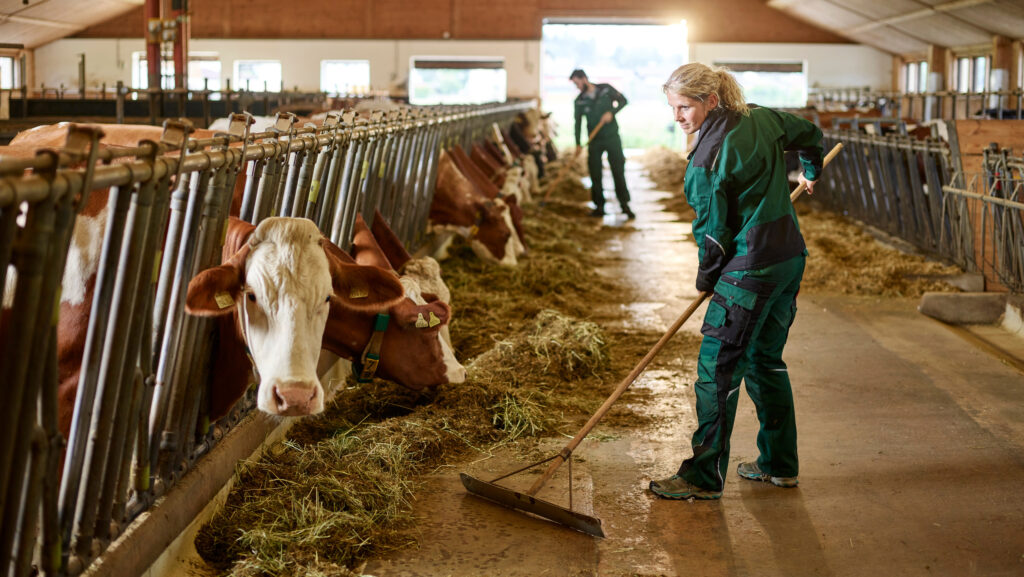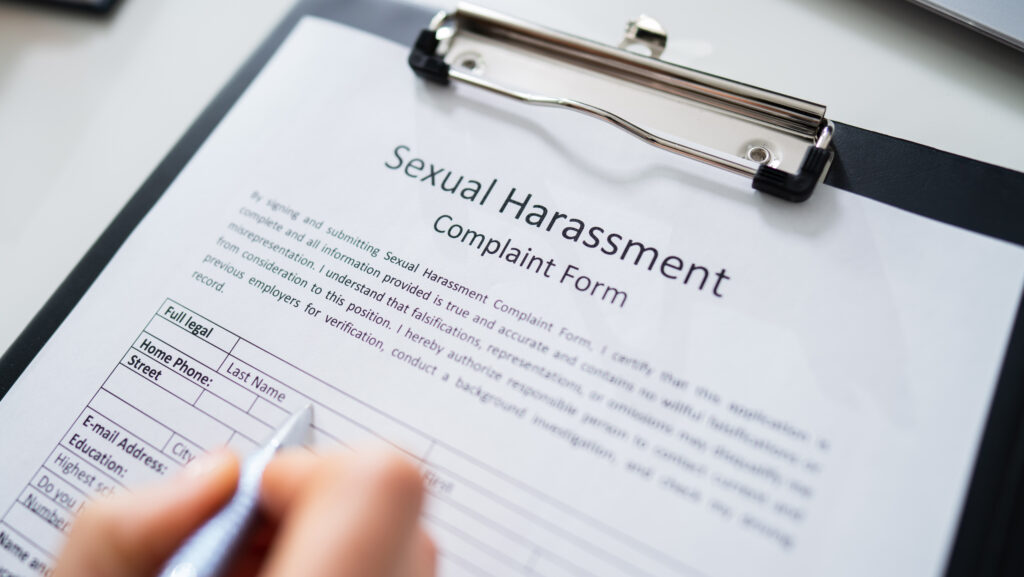Proactive approach required by new harassment laws
 © Adobe Stock
© Adobe Stock Farm employers now have a legal duty to proactively prevent sexual harassment from occurring in the workplace since new legislation came into force on 26 October 2024.
The Worker Protection (Amendment of Equality Act 2010) Act 2023 places a new duty on employers to anticipate when sexual harassment may occur, and to take what is referred to as “reasonable steps” to prevent it.
An employee who successfully wins a sexual harassment case can be awarded a 25% uplift in compensation by an employment tribunal if employers are found to have failed in their duty to take preventative steps.
See also: Legal tips when taking on new staff
The new legislation can seem daunting to farmers who commonly have a small workforce, but it needn’t be, says Natalie Ward, a solicitor specialising in employment law at law firm Thrings.
Here, Natalie offers advice on what businesses need to consider.
Identify risk areas
The new duty is an anticipatory one, so it is not an option to wait for an incident of sexual harassment to occur before making changes.
A tribunal would want to be satisfied that the business had carried out risk assessments to identify situations where sexual harassment could occur, before considering preventative steps.
Farmers should look at every aspect of their business and consider whether there might be a risk that sexual harassment could occur, Natalie advises.
“In a farm setting, is there a risk of two employees working together in a remote setting or late into the night?
“Does the farm take on apprentices or college graduates who are young and inexperienced? In larger farming businesses, is there a power imbalance within the management lines?
“Are there one or two females working within an otherwise male-dominated team? Is there a culture of crude banter in the yard?”
Reasonable steps cannot be put in place if the employer hasn’t understood, or taken steps to understand, where the risks lie in the business, she points out.
Engaging with employees is an essential part of any risk assessment.
“You might want to interview your staff to understand where they see the risks – for example, where they come into contact with third parties – as they will probably know better than you do, then work out how you can prevent it,” says Natalie.
Don’t overlook social media risks
Sexual harassment can occur not just in a physical situation, but also over social media and WhatsApp messaging.
There might be a group of milkers who have set up a WhatsApp group for messaging on issues relating to their work, so it is clearly connected to their employment, even though the farm employer might not have set it up or encouraged them to do so.
“The employer could be responsible for sexual harassment occurring in this forum,” says Natalie.
Third-party interactions
Employers also need to consider where sexual harassment might be carried out by third parties – those people a worker comes into contact with during the course of their employment.
That third party might be an agricultural supply company or a contractor.
Workers may also encounter third parties when they go onto other farms – for example, when labour is outsourced to help with harvesting.
If a farm has a diversification business that brings staff directly into contact with the public that must be considered too.

© Adobe Stock
What are ‘reasonable steps’ for preventing harassment?
Size of business
A tribunal will take into account the size of the business, and the resources available to it.
A farm won’t have the resources of a company the size of Microsoft, and very few have a human resources department.
Therefore, it wouldn’t be expected to be in a position to provide the degree of management training that big employers can, says Natalie.
It is all proportionate, but a farm employer really does need to show that they have sat down and thought about the risk assessment and put in preventative steps, she adds.
Anti-harassment policy
Have a clear and updated anti-harassment policy, setting out what you consider to be unacceptable behaviours in the workplace, so that staff are aware of expected standards.
“This policy may also cover aspects relating to social media or messaging platforms and make it clear that harassment can occur in these settings too,” says Natalie.
Training
Giving equality and diversity training is an essential step and further enhances understanding, says Natalie.
“This should be provided to all staff, from the most senior to the most junior. Managers should also be provided with training on how to deal with reports of sexual harassment and how support can be provided to victims and investigations carried out.”
Reducing risks posed by social media
A reasonable step to reduce the risk of sexual harassment on messaging platforms is to request to be added to the group.
Another obvious way of making staff understand what is acceptable and what isn’t is to offer training on how employees will be expected to conduct themselves when messaging to encourage polite and courteous exchanges over WhatsApp and other forms of communication.
It can either be incorporated into the employer’s social media policy or harassment policy or whatever training is given to make sure that it encompasses all actions, not just face-to-face in the workplace but also digitally.
Written reporting procedure
Have a written procedure in place for reporting sexual harassment, setting out what an employee should do in this situation, who they should report to, and how an investigation will be carried out.
“Your staff should know that there is a process they can follow and that their complaints will be taken seriously and looked into so that they feel confident that they can raise those concerns,’’ advises Natalie.
Third parties
The position is trickier in relation to third parties.
“Although it is really hard to have any control over third parties, the farm employer should think about whether there are practical steps that can be taken,” Natalie says.
Those steps might be as simple as putting up signs, similar to those often seen in retail environments, which state that bad behaviour towards staff won’t be tolerated.
“That is something a farmer can easily do if they have the general public coming onto the farm,’’ suggests Natalie.
“Stating in your standard terms and conditions in agreements with suppliers and contractors that you won’t accept the harassment of any member of your staff, and that they must behave themselves when they are on your site or with your staff, would be a reasonable and low-cost step to take.’’
If seconding staff onto other farms, consider asking for that farm’s policy on harassment, and advising them of your zero-tolerance approach.
“Don’t forget to reiterate to any of your staff working on other sites that they shouldn’t tolerate any unacceptable behaviour and should report it to you immediately,’’ says Natalie.
Once a plan is in place, what next?
Regularly review risk assessments to take account of any changes to the way the business and staff operate, and to update preventative steps.
“It goes without saying that you should deal promptly with any reports of sexual harassment and support the wellbeing of the victim,’’ says Natalie.
“If, for example, banter still occurs after equality and diversity training has taken place then it has obviously not been effective, so the farmer would need to review and refresh that training or think of other steps they could take to prevent it from happening again.’’
